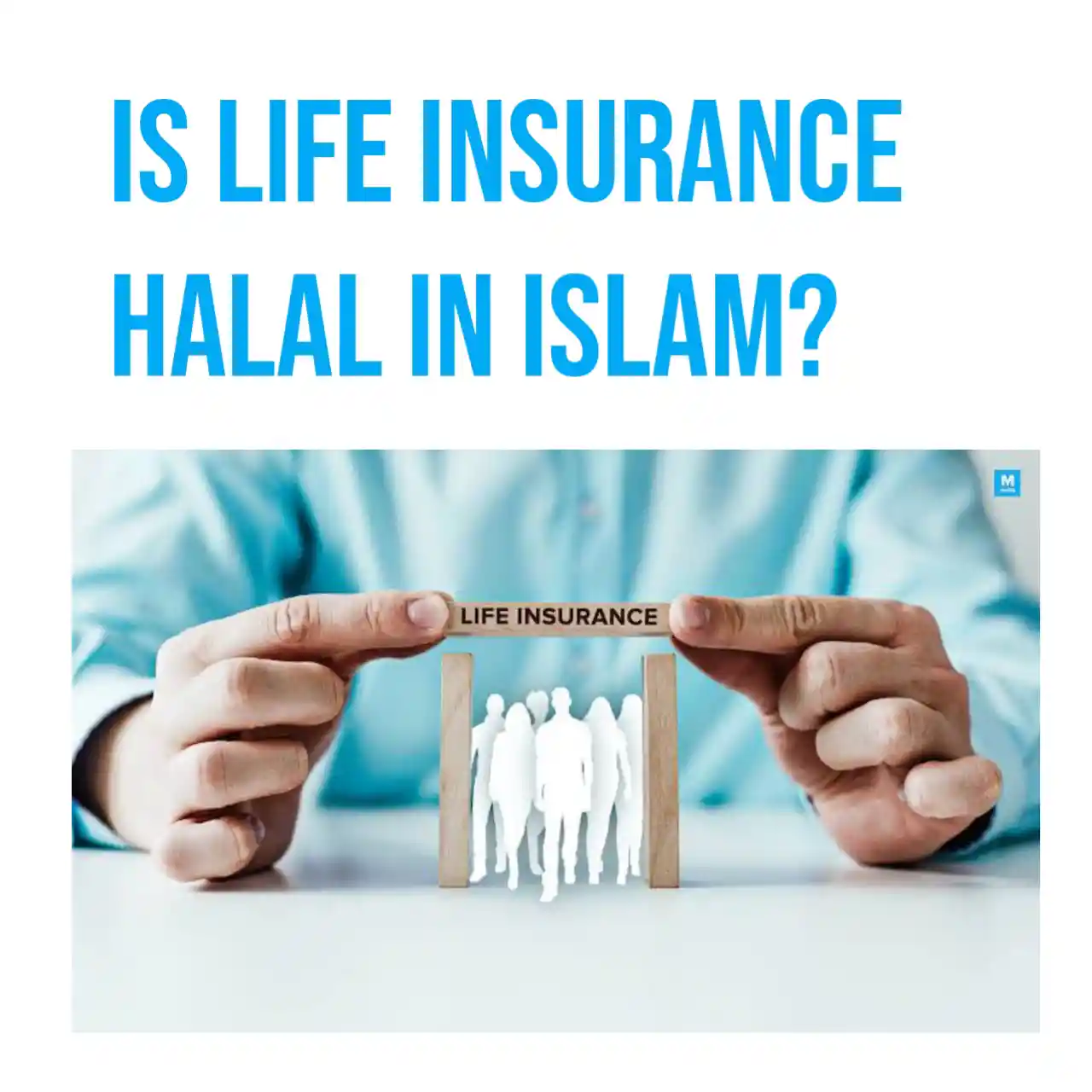Is Life Insurance Halal In Islam?
Advertisements
Is life insurance halal in Islam? Is permanent life insurance halal? Is selling life insurance haram? Is term life insurance halal? On this article, we will see the answers to all these questions.
Life insurance is essentially a contract between a person and a life insurance company. The insurance company agrees to pay a lump sum to your beneficiaries upon your death in exchange for you making regular premium payments.
Is Life Insurance Halal In Islam?
Life insurance or insurance of one’s possessions is haram in Islam because it involves deceit. According to Shaykh Ibn Baz, insurance of one’s life or possessions is haram and not permitted because it involves gharar (buying/selling something where it is unknown whether what is being bought/sold will actually be achieved/delivered, or in what specific quantity, thus putting one’s money at undue risk of loss) and riba (usury, interest).
Allah has prohibited all transactions based on riba and all transactions involving deception, as a mercy to this ummah and to protect them from harm. Allah says:
“…whereas Allah has permitted trading and forbidden riba”
Surah al-Baqarah 275
And it was narrated in a sahih report that the Prophet (peace and blessings of Allah be upon him) forbade deceit.
Advertisements
Commercial insurance is haram in Islam because it is a form of riba and is based on risk and uncertainty. It also unjustly consumes people’s money. In Islam, cooperative insurance is also Haram.
Why Commercial Insurance Is Haram In Islam?
There are many reasons why commercial insurance is prohibited in Islam and among them are:
It is a form of riba
All types of commercial insurance are unmistakably riba (interest/usury). Insurance is the exchange of money for money, of a greater or lesser amount, with one of the payments delayed.
It involves riba al-fadl (interest-based transaction) and riba al-nasiah (interest charged if payment is delayed beyond the due period), because insurance companies take people’s money and promise to pay them more or less money when a certain accident for which insurance has been purchased occurs.
This is riba, and riba is haram in several ayat of the Quran.
Advertisements
It is based on gambling
All kinds of commercial insurance are based on nothing but gambling which is haram according to the Quran:
“O you who believe! Intoxicants (all kinds of alcoholic drinks), and gambling, and Al-Ansab (stone altars for sacrifice to idols etc.) and Al-Azlam (arrows for seeking luck or decision) are an abomination of Shaytan’s handiwork. So avoid (strictly all) that (abomination) in order that you may be successful.”
Surah al-Maidah 90
All types of insurance are a form of gambling. They tell you that if you pay this much money, we will give you this amount if something bad happens to you. This is just chance.
Insisting on distinguishing between insurance and gambling is simply stubbornness that any rational person would find intolerable. The insurance companies themselves admit that insurance is gambling.
Insurance is based on uncertainty
All kinds of insurance are forms of uncertainty, and transactions which involve uncertainty are forbidden according to many sahih ahadith, such as the hadith narrated by Abu Hurayrah (may Allah be pleased with him):
“The Messenger of Allah (peace and blessings of Allah be upon him) forbade transactions determined by throwing a stone and transactions which involved some uncertainty.” (Narrated by Muslim).
- [“Transactions determined by throwing a stone” – this was a type of transaction that was prevalent in the markets of pre-Islamic Arabia, whereby a stone was thrown by either the buyer or the seller, and whatever it touched, its transaction became binding.
- “Transactions which involve some uncertainty” – is a transaction in which there is no guarantee that the seller can deliver the goods for which he receives payment. Footnotes from the translation of Sahih Muslim. (Translator’s Note)]
All commercial insurance is based on the most extreme type of uncertainty. Insurance firms and people who sell insurance refuse to insure cases until there is a clear ambiguity about whether or not the condition being insured against will occur.
In other words, the condition being insured against must be capable of occurring or not occurring (as opposed to, for example, someone who has a pre-existing condition, such as a person who is on death row applying for life insurance—translator.)
Furthermore, this transaction incorporates an element of uncertainty, namely when an accident will occur and the degree of the damage caused. As a result, insurance combines three types of high uncertainty.
Commercial insurance consumes people’s wealth unjustly
All kinds of commercial insurance consume people’s wealth unjustly, which is haram according to the Quran:
“O you who believe! Eat not up your property among yourselves unjustly”
Surah al-Nisa: 29
All forms of commercial insurance are deceptive transactions designed to unjustly consume people’s wealth. According to accurate figures calculated by a German specialist, what people get back from what has been taken from them is little more than 2.9%.
Insurance is a huge loss for the country, and there is no evidence or excuse to be found in the behaviour of the kuffar who have lost the ties of kinship and friendship and are thus forced to rely on insurance, which they despise as much as death.
These are just a few of the shari’ah violations on which insurance is primarily based.
There are several other violations that we do not have space to describe here, and there is no need to do so because only one of the violations mentioned above is enough to make insurance one of the most prohibited things in Allah’s Shari’ah.
It is unfortunate that some individuals are misled by the manner in which insurance corporations make insurance appealing and confuse them by calling it “cooperative,” “mutual support,” or “Islamic,” or other terms that make no difference to the unjust nature of insurance.
Is cooperative insurance halal?
The insurance companies’ claim that fatwas given by ulama indicating that so-called “cooperative insurance” is halaal is a deception.
The reason for this confusion is that some insurance companies contacted the ‘ulama with a deceptive scheme that had nothing to do with insurance, but they claimed it was a type of insurance called “cooperative insurance” (to make it sound attractive and to confuse the people).
They said that it was solely a donation, and that it was a type of cooperation enjoined by Allah in the ayah:
“Help you one another in Al-Birr and At-Taqwa (virtue, righteousness and piety)…”
al-Maidah 5:2
, and that the goal was to collaborate in reducing the overwhelming tragedies that may afflict humanity.
But, in reality, what they called cooperative insurance was no different than any other type of insurance; the only difference was in how it was set up, not in its essential essence.
It was far from a simple donation or participation in righteousness and piety; rather, it was cooperation in sin and transgression.
Its purpose was not to alleviate the suffering caused by natural disasters, but to deprive people of their wealth by unfair tactics, which is strictly prohibited, as are other forms of insurance. As a result, what they proposed to the ‘ulama isn’t even insurance.
Concerning the claim made by some that a portion of the premium (money paid to the insurer) be returned, this does not change anything and does not exempt insurance from the taint of riba, gambling, transactions based on uncertainty, unjust consumption of people’s wealth, and going against the principle of trusting in Allah (tawakkul), among other haram actions.
Is selling life insurance haram?
Life insurance is among the most severely prohibited types of insurance if not the single worst one. It is no doubt a type of gambling, and thus working in this field of employment is haram (prohibited), and it is forbidden to be a partner in helping people towards sin and enmity.
Conclusion
Life insurance is haram in Islam because is a source of deception and perplexity. We urge any Muslim who takes pride in his religion and has his hopes set on Allah and the Last Day to fear Allah and avoid all forms of insurance, no matter how appealing their proponents make them seem, because they are unquestionably forbidden.
In this manner he will protect his religion and his wealth, and he will be blessed with security from the Owner of security, may He be exalted.
May Allah help me and you to have insight into matters of religion and to do that which is pleasing to the Lord of the Worlds.
And Allah knows best.
Advertisements








2 Comments